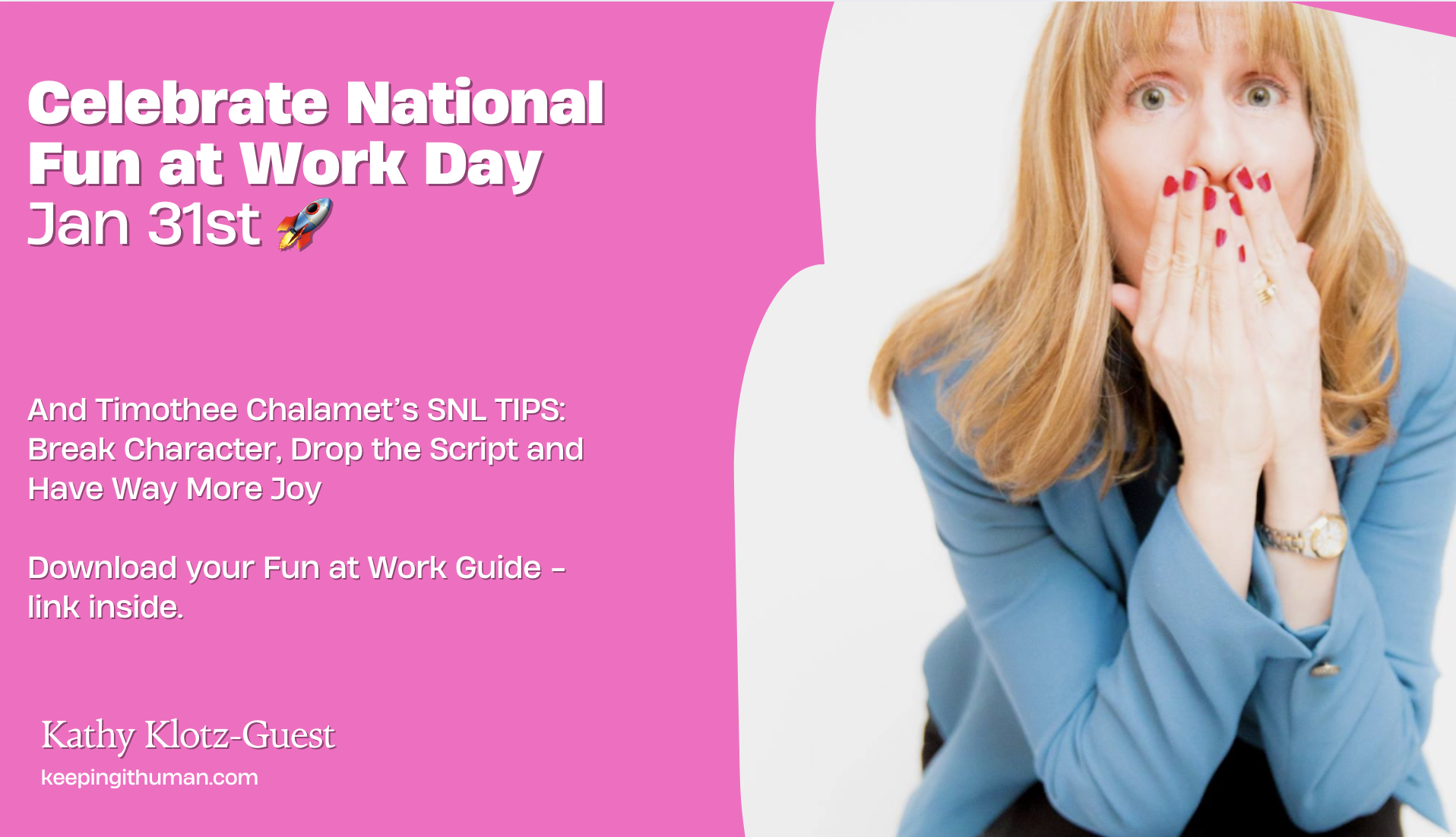In a World of Fake News

I was on a podcast recently with friends and colleagues to promote our StoryCo Conf in LA on Oct 25th (note: still FREE tickets available here at storyconference.info).
Over the weekend, someone wanted to argue with the idea that the truth is an important – maybe even the most important part – of business storytelling. Now, we didn’t get to get into the nuances of that one-sentence point. It’s worth diving into because it’s important. What is business storytelling truth? And what do CMOs and anyone in business leadership need to understand?
Truth is Nuanced
Storytelling truth is nuanced. WHAT? you might be saying. Before you yell at your iPhone or computer, read on!
My friend Annette Simmons talks about this concept extensively and she is on point. She and I have even chatted about this on podcasts together. The truth is multi-faceted and layered:
- There is Truth (capital T): it is a bigger universal or emotional truth: ex – helping others is helping ourselves.
- There is truth (lower case t): this is a fact. Ex: 83% of CEOs think HR is not strategic (I read this in Fast Company. Blame them, HR-types!).
A story doesn’t have to be based 100% on factual truth (small t – facts) to have a bigger emotional truth: hey, Aesop’s fables or Biblical parables have moral, bigger truths and yes, animals don’t talk! Unless you are drunk! Stories don’t have to be 100% factually true to be powerful. They do however have to have an emotional / universal truth in my opinion. This matters.
This particular guy said he disagreed because politicians lie all the time and it’s effective.
Here is my extended answer (hey if you ask someone like me who has studied and practiced story on business and theater stages for over 20 years, you need to hear the nuanced answers!)…
Emotional and Factual Truth: What Matters
First and foremost: Yes, ppl can manipulate truth. While it’s possible to have a story not based on factual truth or on emotional truth for the teller (a manipulation of the truth listeners believe), I truly believe great business storytelling is based in factual and emotional truth. Even when politicians lie and succeed, they base it on an emotional truth that they know their audience believes. They may not believe it and they clearly manipulate facts – that is straight up MANIPULATION. I would never recommend my business clients do this – ever. So just bc some ppl do it and it can be done, doesn’t mean you should. The whole point of great business storytelling is that you are connecting with truth to heighten trust and transparency with your audience.
Now, again every fact (lower case t) need not be true yet the heart should be. It doesn’t mean, for ex, you can’t heighten the conflict or tension when you tell the story for effect – from the stage or page, for ex. Comedy itself is the truth (the heart and fact) heightened to a crazy, funny place. That’s the whole point. Truth on steroids as I’ve always said.
Integrity and Truth
Yet, you can’t lie about *key facts* (a client, a value, financial results, etc) or emotional truths and say you stand for integrity. The entire point of that podcast with storytelling recommendations for business and career – not ‘hey what do ppl do that they get away with?’ And by the way, no one gets away with it permanently. They burn trust.
There’s your business storytelling truth bomb!
Because you can and others do it is the equivalent of saying to your mom, “others are doing it so I’m gonna do it, too!” There’s a bridge out there just screaming your name!
The truth is nuanced. What do you think?


